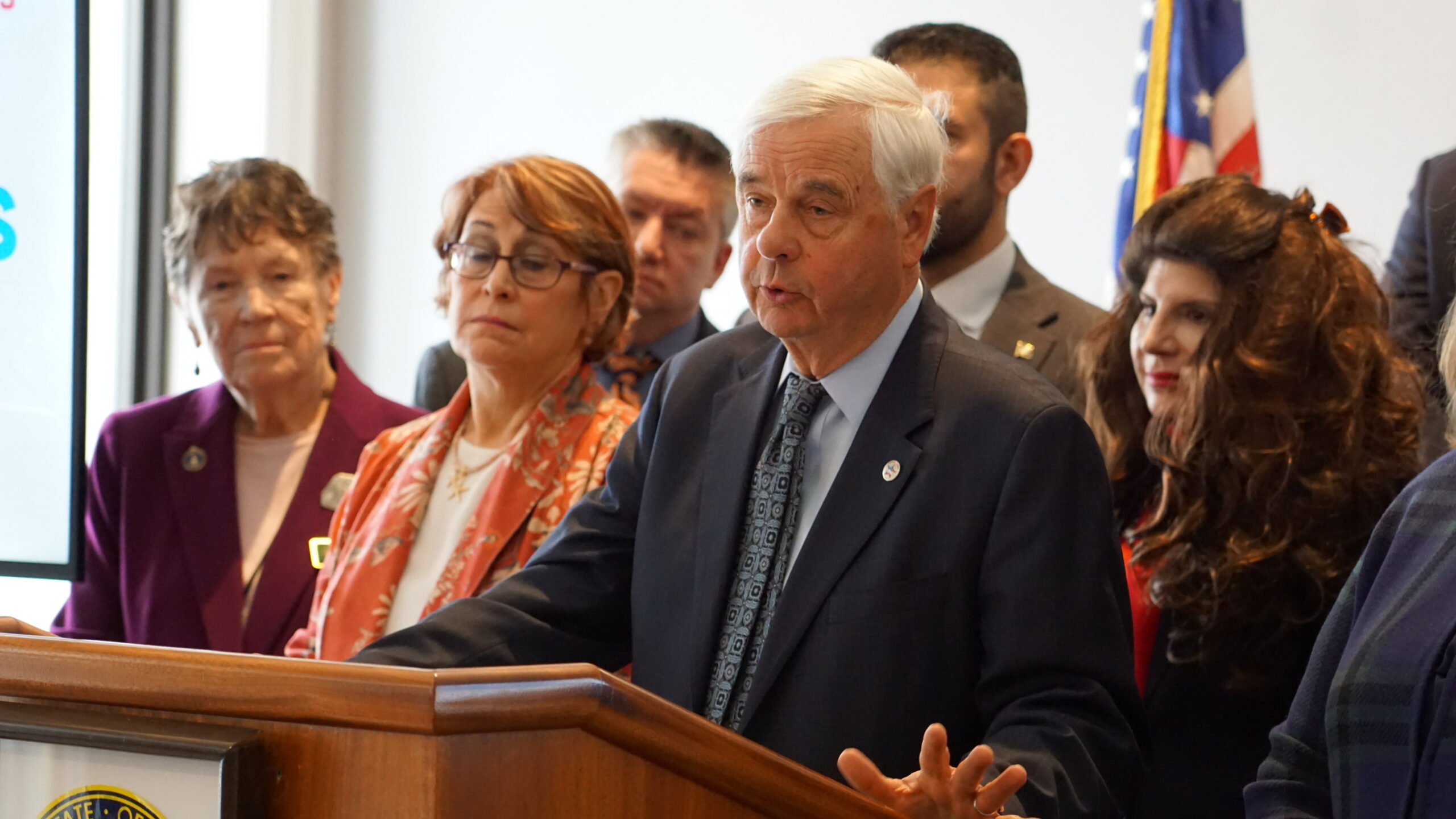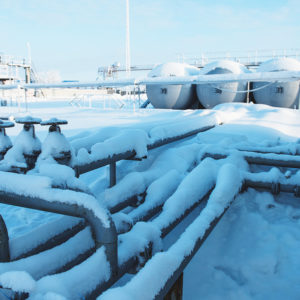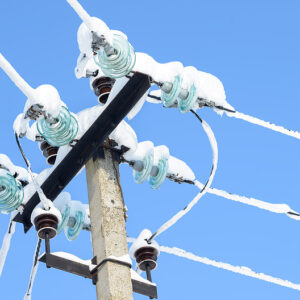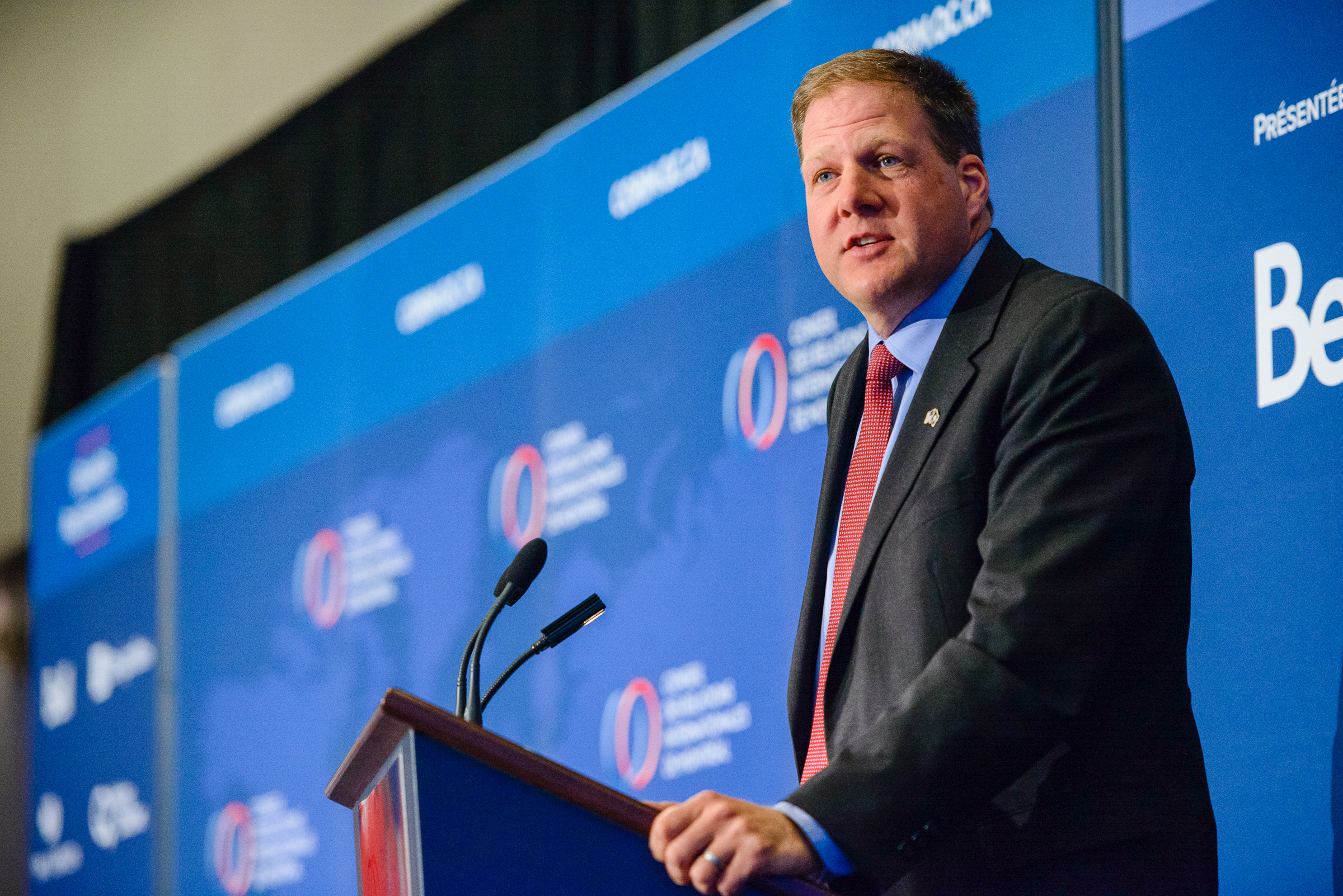
In the politically divided purple state of New Hampshire, getting 22 of the legislature’s 24 state senators to agree on anything is nearly impossible. Maple syrup, the Red Sox, sure. Maybe motherhood and apple pie (depending on where the apples are from)…but a utility company’s natural gas pipeline?
No way.
Except that’s exactly what happened. In May, all but two members of the New Hampshire state Senate—including all 10 Democrats–endorsed Liberty Utilities’ “Granite Bridge” pipeline project. Support from Republicans like Senate President Chuck Morse and Majority Leader Jeb Bradley for this 27-mile natural gas pipeline from Stratham to Manchester is hardly a surprise. But when a liberal environmental activist like Sen. Martha Fuller Clark is on board, that’s definitely news.
“Granite Bridge will make it possible to store and deliver natural gas to a greater number of New Hampshire customers, especially during a cold snap like we experienced this past winter, at a lower cost and with fewer greenhouse gas emissions than home heating oil, the current alternative,” Sen. Clark said in a press release endorsing Granite Bridge.
Though it’s years away from final approval, the broad, bipartisan support for Granite Bridge stands in stark contrast to the reaction to most of the energy infrastructure projects in the past few months. Even renewable energy projects like Northern Pass (hydro-electric), NextEra (solar) and Spruce Ridge (wind) have been shot down in recent weeks—a fact that makes Liberty’s steady progress on Granite Bridge even more surprising.

It is also a cautionary tale for Green-action groups, showing how they can find themselves fighting alone out on the political fringe. There are still many Public Utility Commission filings, hearing and debates yet to come, but it’s not too early to ask: How did Liberty Utility and Granite Bridge come so far with so little opposition?
IT’S THE WEATHER, STUPID.
The first thing to remember about New Hampshire and energy policy is this: It’s cold. Really cold. Too cold, in the opinion of many homeowners, to rely on electricity for heat. In places like Florida, electric heat is fine. But at the border of Canada, many believe…not so much.
The most common home heating fuel is heating oil, used in more than 44 percent of New Hampshire homes. Propane, another carbon-based energy source, heated another 15 percent.
Heating oil is both relatively expensive and emits a relatively high CO2 output. Not only is it used to heat homes, but it also plays a significant role in providing electricity when demand is unusually high.
“During the two weeks of Arctic cold [in 2017], New England generators burned through about 2 million barrels of oil. That’s about 84 million gallons. That’s more than twice as much as all the oil used by New England power plants during the entire year of 2016,” according to ISO New England CEO Gordon van Welie. Even worse, during that cold snap, energy from coal or oil shot up from about 2 percent of New England’s grid total to 33 percent.
All this is bad news for climate activists and energy customers. How can New Hampshire, which has committed to reducing its carbon footprint even as the state’s economy continues to grow, turn this around and still meet its energy needs? One potential solution is natural gas.
While it’s not carbon neutral, burning natural gas for fuel generates less CO2 than any of the carbon-based fuel sources like coal, heating oil or propane. It’s also significantly cheaper to heat your home with natural gas than heating oil.
Which explains why even progressives like President Obama’s Energy Secretary Ernest Moniz say “Natural gas has shown itself to be an important bridge to a clean energy future.” New Hampshire state senator Clark echoed that sentiment in her statement supporting Granite Bridge:
“Increasing access to natural gas will reduce air emissions and help to fight climate change, as well as lowering our high energy costs in the short term while we work to create an energy future that will rely solely on true renewables, including solar and wind.”
The opportunity to get more New Hampshire households off heating oil and onto natural gas would seem like a win for the green movement. And yet, as Mark Perry of the American Enterprise Institute notes, “the trouble is there isn’t enough pipeline capacity to bring in natural gas from the Marcellus shale in Pennsylvania to New England in times of high demand. Even as America’s natural gas production has soared, the pipeline capacity to get it to where it’s needed hasn’t kept up.”
Holman Jenkins of The Wall Street Journal makes the same point: “New England is in the worst shape [in the nation], having killed multiple projects for new pipelines and even a transmission line to bring hydropower from Canada. Local electric prices are 50% higher than the national average. Every winter, thanks to an overtaxed pipeline network, the six-state region descends into a ‘precarious position,’ according to New England’s grid manager.”
And a 2018 report from ISO-New England is filled with references to “fuel shortages” and “fuel availability” (not to mention the possibility of brown outs and load shedding in harsh winter weather 10 years from now), all of which translates to “customers who need natural gas, but there’s not enough pipeline capacity to get it to them.”
How did New England become America’s energy-grid basket case? “Political obstacles driven by environmental groups,” says Perry.
“THE ENEMY OF THE GOOD”
“There are just so many reasons why a pipeline is just not the right choice.” So says Stephanie Scherr, founder and director of EchoAction.org, a self-described “environmental justice” organization in New Hampshire. At a public hearing in Epping earlier in the year, Scherr said “when we choose gas we are complicit in what happens to other people.”
In a statement to NHJournal, The Conservation Law Foundation calls Granite Bridge “a bad deal for New Hampshire residents.”
When asked about the argument made by people like Secretary Moniz and Sen. Clark that natural gas should be a bridge to renewables, Scherr bristles. “I have nothing to say about Senator Clark’s decision. I think it was a most unfortunate decision and we were very disappointed,” Scherr said.
Patricia Martin, EchoAction’s Energy Policy Coordinator, is even more direct. “I am actually quite upset that Liberty lobbyists manipulated these senators into ENDORSING [emphasis in original] the project before they’ve heard any good arguments against it or probing questions about it,” she told NHJournal via email. “Now their egos and reputations will be tied to being named in that press release as endorsing the project.”
EchoAction is part of a broader environmental movement across New England, including the Conservation LAW Foundation, Citizens Climate Lobby and others who oppose virtually all pipelines—period. “They’ve decided to make the perfect the enemy of the good, which is a shame because Granite Bridge can do a lot of good,” a source close to the project told NHJournal.

The strategy is simple: Oppose any expansion of the carbon-energy infrastructure and force New Hampshire to expand renewable energy to meet future needs.
‘I oppose any expansion of fossil fuel infrastructure,” Martin says. “If we want to transition away from fossil fuels, we need to stop expanding its usage as a first step. If you know there’s a stop sign coming up, do you step on the gas and then brake hard at the last moment?”
Echo Action plans to protest outside the New Hampshire Democratic state convention on Saturday, June 23 in response to the Democrats’ lack of fealty to their zero-carbon-infrastructure stance.
The problem is that renewables are nowhere close to covering the region’s energy needs. In a statement, the CLF says of Granite Bridge:
“Rather than lining the pockets of another utility, New Hampshire should support the many small businesses providing low-cost clean technologies like heat pumps for heating and cooling.”
But even if New Hampshire were somehow converted to an “electric heat” state like South Carolina or Virginia (remember the “it gets really cold here” part?), in 2016 the state got a mere 2.3 percent of its electricity from wind—one-tenth the amount of electricity generated from natural gas. While renewables are close to providing 20 percent of total energy consumed in New Hampshire (a figure that excludes nuclear—which makes no sense, but that’s a topic for another day), by far the largest source isn’t wind, solar or geothermal. It’s biomass. Biomass generates three times more electricity than the other three sources combined.
Not to mention the fact that these “many small businesses” all get subsidies for their biomass/electric/wind from current ratepayers, pushing the cost of electricity in one of the most expensive states in the country even higher.
The reality is that New Hampshire businesses and homeowners aren’t going to sit in dark, unelectrified buildings and wait for wind and solar technology to catch up with current demand. The lights are going to come on, the stoves are going to be lit. Opposing smart pipeline projects won’t stop that from happening. It just means the natural gas will get to New England in dumb ways.

Like tanker ships from Russia.
Earlier this year, the left-leaning Boston Globe ran an editorial decrying “pipeline absolutism” and urging the region’s environmentalists to end their knee-jerk opposition to all projects.
Their coverage included the story of a Russian tanker bringing liquified natural gas 4,500 miles from the Arctic to Boston because of a lack of pipelines in New England.
“Climate advocates have put short-term tactical victories against fossil fuel infrastructure ahead of strategic progress on reducing greenhouse gas emissions. They’ve obsessed over stopping domestic pipelines, no matter where those pipes go, what they carry, what fuels they displace, and how the ripple effects of those decisions may raise overall global greenhouse gas emissions,” the Globe argued. [emphasis added]
Why would environmentalists support shipping LNG (via diesel-powered tanker) through the pristine Arctic region when there’s plenty of home-grown natural gas in North America? According to the Globe, a lawyer for the anti-pipeline Conservation Law Foundation “shrugged off” the issue of Russian gas being transported to New England.
“On the plus side, though, they didn’t offend Pittsfield or Winthrop, Danvers or Groton, with even an inch of pipeline,” the Globe noted wryly.
A good way to avoid New England NIMBYism. But how is that a smart strategy for the environment?
THE GRANITE BRIDGE PROJECT
Enter Liberty Utilities and Granite Bridge. On paper, it appears to be a no-brainer. Taking advantage of the state’s “Energy Infrastructure Corridor” program, the pipeline’s 27 miles are mostly located in the Route 101 right-of-way and buried underground, thus avoiding many of the NIMBY issues that have plagued other projects.
And the pipeline will serve a densely populated area from Stratham to Manchester, where natural gas demand is going to climb with or without a new pipeline. Liberty currently serves 90,000 customers from Laconia to Nashua with a single pipeline that is nearing capacity. And that’s a problem.

“Look at what’s happened in California when you refuse to invest in infrastructure,” former New Hampshire Speaker of the House Bill O’Brien told NHJournal. “Energy, water, whatever. You can refuse to build it, but demand is going to rise. In California, they’ve got water shortages, brownouts—it’s a disaster. New Hampshire environmentalists should learn that lesson and support the right projects, not just oppose everything,” the Republican said.
And Granite Bridge also fits in with the new 10-year Energy Strategy released by Gov. Chris Sununu, which prioritizes lower rates for businesses and consumers. The project also includes a large LNG tank in an abandoned quarry near Epping. According to John Shore, senior manager of marketing and communications for Liberty Utilities, this approach will let Liberty to buy natural gas during the summer when prices tend to be low, store it, then use that cheap, stored gas to save customers money in the winter when prices inevitably spike.
“We know the price patterns in the industry and, with this storage capacity, we can use that knowledge to save our customers money,” Shore told NHJournal. If the Granite Bridge pipeline had been in place starting in 2013, this “buy gas when it’s cheap” strategy would have saved Liberty Utilities customers more than $100 million by now, according to Shore. It also provides a cushion against price instability in the natural gas market for Liberty’s customers.
Plus, Liberty is putting the LNG tank in an old quarry, where it’s both safer and out of sight.
Lower CO2 emissions, lower prices, more price stability and all hidden underground on a highway right of way. And green activists at CLF and Echo Action are against it? To the average New Hampshire consumer, ratepayer and voter—this opposition makes little sense.
By opposing projects that have a demonstrable environmental benefit in the name of still-unavailable levels or wind and solar, the anti-pipeline forces have pushed themselves to the political fringe.
And once they’ve marginalized themselves as the “We’d rather see tankers from Russia than a pipeline from Pennsylvania” movement, how much clout with they have in Concord? Won’t it be easier for utility companies to convince lawmakers to shrug off their objections, the way the New England CLF attorney “shrugged off” the impact of their anti-pipeline stance on the pristine Arctic environment?
Granite Bridge could be a turning point for the region’s environmental stakeholders, a path for the energy and environmental movements to find common ground going forward—avoiding clearly-unpopular projects like Kinder Morgan while supporting “win/win” infrastructure proposals.
Or it could be a breaking point, driving moderate voices away from the Granite State’s environmental movement.

















